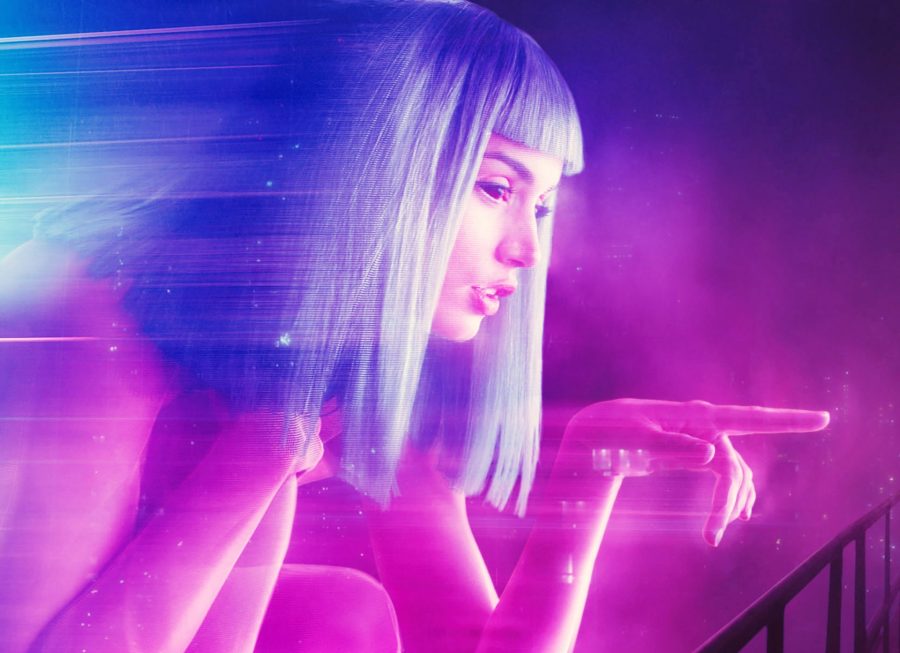It is the year 2049, and a lone officer trudges through desolation, searching for truth among sand and stone. Ominous synth echoes and reverberates as the scene unveils a paradise that once was.
For a continuation to a story told more than three decades ago, the sequel to Ridley Scott’s “Blade Runner” could have easily rehashed the first installment. And yet, it manages to stay both true to the original and unique at the same time. Fans of the first film will appreciate the elegiac tone and slow-burning undercurrent of tension. But these nods to Scott’s original vision are heightened by director Denis Villeneuve’s greater focus on pathos, along with his flair for building narrative intensity. Here, slower beats fragment into chaotic high-stakes action sequences, culminating into moments that are both brutal and filled with emotion. So if you’re worried that trailers make it look like a generic, action-oriented Hollywood blockbuster — don’t be. The core atmosphere of the first film is still there, and the overarching aesthetic is undeniably “Blade Runner.”
At the same time, violence has its consequences, and blood only leads to more blood. A “blade runner” is a hunter. They track down synthetic humans, known as Replicants, gone rogue, and then “retire” them by killing them. In a world where data can be romanced and androids are either hunted down or used as tools to gory ends, the short-lived life of a Replicant is subject to even more moral scrutiny. In “Blade Runner 2049,” 30 years after the first film, artificial humans are still viewed as something lesser. But if they look like us, think like us, and experience emotion like us, at what point do we consider them human? At what point do we consider them you or me? The writing here goes deeper than the first film, depicting the more complex — and troubling — consequences of emotional capacities in technology. Even more, it illustrates the societal and religious ramifications that come with our creations.
Villeneuve thus presents us with a future in which these questions are real and tangible, intersecting within a lived-in world that wrestles with these concepts. The world he portrays is a tapestry of color; light and dark, neon cyberpunk and grimy noir, all intertwined. There is a sense of progression as well: The technology is higher, the cities are dirtier, and the Replicants are realer in both body and mind. This intricate tapestry serves as the backdrop for Officer K’s story, a young blade runner trying to unravel the truth behind a disturbing mystery. His journey is a simple one, but the themes are not. Existentialism and humanism form the nerves of this film, and their convergence channels a brooding tale of love, loss, and discovery. K’s journey is for himself, but its ripples extend to the rest of humanity.
With the advent of complex deep learning and our gradual progression towards true artificial intelligence, these themes are becoming increasingly relevant. More notably, they’ve become culturally popular. Take “Westworld” or “Ex Machina” for example, both of which deal with the consequences of creating artificial humans. Or even Stephen Hawking and Elon Musk’s dire warnings about the inevitable singularity, wherein artificial intelligence transcends humanity. AI in itself is becoming a rapidly popular topic to bring up. Yet among the recent deluge of media and science-fiction that have tackled these ideas (some great, some not so much), “Blade Runner 2049” manages to hold its own quite well. It doesn’t wax philosophical by tossing these concepts at your face, or flaunt itself as a blatantly cerebral science thriller. Instead, its ideas are more understated, drawn into the veins and heart of the film.
In the end, the film provides us with some potential closure to these nagging questions: What makes us sentient? What makes us human? Why are we human?
Perhaps it’s not the answers that matter, but that we even exist at all.
Grade: A
Director: Denis Villeneuve
Starring: Ryan Gosling, Robin Wright, Ana de Armas, Dave Bautista, Jared Leto, Sylvia Hoeks
Release Date: October 6, 2017
Rated: R
Image Courtesy of Warner Bros.














